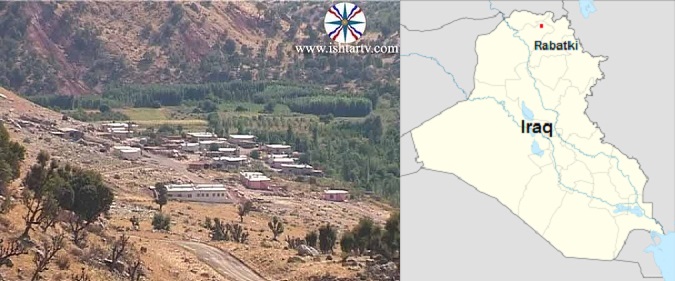Turkmens request Ankara’s help for self-defense
A man wounded by a bombing in Turkmen city of Tuz Khurmato is carried to a hospital in Kirkuk. Iraq has become lethal for Turkmens, a Turkish official says. REUTERS photo
Iraqi Turkmens have shared their demands and expectations to set up own armed forces with Ankara, Erşat Hürmüzlü, President Abdullah Gül’s Middle East adviser, has said, reminding that Turkmens should find ways to protect themselves if the central government is unable to do so.
Hürmüzlü voiced his concerns over the killing of senior Iraqi Turkmen officials, noting that security, which should be maintained by the state to all its citizens, did not exist in the country. “If the Iraqi central government is unable to protect Turkmens, if the Iraqi army and law enforcement officers can’t defend Turkmen citizens, as a matter of course Turkmens should find ways to protect themselves,” he said.
Deputy Head of the Iraqi Turkmen Front, Ali Hasim Muhtaroğlu, was killed in a suicide bombing in the city of Tuz Khurmatu on June 25. Top Turkish officials have condemned the attacks, with President Gül sending a letter of condolence to Iraqi Turkmen Front head Arshad al-Salihi and Foreign Minister Ahmet Davutoğlu having a phone conversation with the family of Muhtaroğlu.
A declaration released following a bimonthly meeting of the National Security Council (MGK) also expressed “deep sadness” over the killing.
“As we have seen, a planned study was carried out in the Turkmeneli region to wipe out the Turkmen presence and identity,” Hürmüzlü said, referring to the violence and terror incidents that have been ongoing for over a month. “They are doing this to force Turkmens to leave, and to stir sectarian clashes,” he added.
Iraq is weathering its deadliest outburst of violence since 2008, with more than 2,000 people killed since the start of April.
The advisor said Iraqi Turkmens had shared their demands and expectations with Turkish authorities over the establishment of armed forces, adding that Turkish officials were closely monitoring developments on the issue. “We suggest Turkmens proceed on the issue through legal means. However, the situation is out of control, there is no security of life in Turkmeneli regions,” he said, while underlining their prior demands from Turkey.
“We ask Turkey to protect the citizenship rights, introduction of constitutional rights, which they couldn’t use, as soon as possible. Turkmens want to sustain their lives, as Iraq’s third fundamental element, in a unitary and united Iraq,” he said.
June/28/2013















